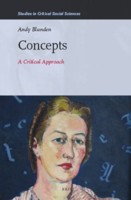
Concepts. A Critical Approach
Andy Blunden
Brill July 2012Andy Blunden presents a critical review of theories of Concepts in cognitive psychology, analytical philosophy, linguistics, conceptual change theory and other disciplines. The problems in these disciplines has led many to abandon the idea of Concepts altogether, particularly those taking an interactionist approach. Blunden responds with an historical review focussing on the idealist philosophy of Hegel, its reception and transformation in the development of positive science and finally the cultural psychology of Lev Vygotsky. He then proposes an approach to Concepts which draws on Activity Theory. Concepts are equally subjective and objective, units of consciousness and of the cultural formation of which one is a part. This continues the author's earlier work in "An Interdisciplinary Theory of Activity" (Brill 2010).
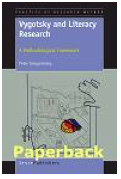
VYGOTSKY AND LITERACY RESEARCH: A Methodological Framework
Peter Smagorinsky
Rotterdam & Boston: Sense. 2011In this book Peter Smagorinsky reconsiders his many publications employing Vygotsky?s theory of culturally-mediated human development and applies them, through a unified and coherent series of chapters, to literacy research. This exploration takes previously-published work and incorporates it into a new and sustained argument regarding the application of Vygotsky?s ideas to current questions regarding the nature of literacy and how to investigate it as a cultural phenomenon that contributes to human growth in social context. To conduct this inquiry, Smagorinsky first provides an overview that contextualizes Vygotsky both in his own time and in efforts to extrapolate from his Soviet origins to the 21st Century world. This consideration includes attention to the current context for literacy studies. He then reviews current conceptions of literacy in the realms of reading, writing, and additional tool use, grounding each in a Vygotskian perspective. The book?s final chapters ta! ke a critical look at both research method and the writing of research reports, taking into account both research and research reports as social constructions based in disciplinary practices. On the whole, this volume makes an important contribution to Vygotskian studies and literacy research through the author?s careful alignment between theory and practice. Practice of Research Method Volume 2 ISBN 978-94-6091-695-3 hardback USD99/EUR90 ISBN 978-94-6091-694-6 paperback USD49/EUR45 November 2011, 345 pages
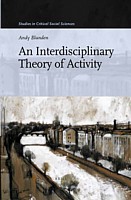
An Interdisciplinary Theory of Activity
Andy Blunden, (2010)Andy Blunden presents an immanent critique of Cultural-Historical Activity Theory, the current of psychology originating from Lev Vygotsky (1896-1934). Tracing the roots of this theory from Goethe, Hegel and Marx, the author draws out the principles with which Vygotsky developed a theory of the mind in which the individual and their social situation form a single Gestalt, transcending the problems of mind-body dualism. Blunden follows the efforts of later members of the School to resolve outstanding problems in Vygotsky's work. This includes a critical appropriation of Leontyev's Activity Theory and Michael Cole's cross-cultural research on the role of context in learning. The outcome is a concept of activity which transcends the division between individual and social domains in human sciences.
A critical review of Cultural-Historical Activity Theory, the psychology originating from Lev Vygotsky (1896-1934). Tracing its roots in Goethe, Hegel and Marx, the author builds a concept of activity transcending the division between individual and social domains in human sciences.
URL for Publisher's Website: http://www.haymarketbooks.org/pb/An-Interdisciplinary-Theory-of-Activity

Macro Cultural Psychology: A Political Philosophy of Mind
Carl Ratner
Oxford University Press, 2011This book articulates a bold, new, systematic theory of psychology, culture, and their interrelation. This book explains how macro cultural factors -- social institutions, cultural artifacts, and cultural concepts -- are the cornerstones of society and how they form the origins and characteristics of psychological phenomena. This theory is used to explain the diversity of psychological phenomena, such as emotions, self, intelligence, sexuality, memory, reasoning, perception, developmental processes, and mental illness. I draw upon Lev Vygotsky's sociocultural psychology, Bronfenbrenner's ecological psychology, as well as work in sociology, anthropology, history, and geography. This book also explores the political implications and assumptions of psychological theories regarding social policy and reform. The theory outlined here addresses current theoretical and political issues such as agency, realism, objectivity, subjectivism, structuralism, postmodernism, and multiculturalism. In this sense, the book articulates a systematic political philosophy of mind. The book utilizes this political philosophy of mind to examine numerous approaches to psychology, including indigenous psychology, cross-cultural psychology, activity theory, discourse analysis, mainstream psychology, and evolutionary psychology.
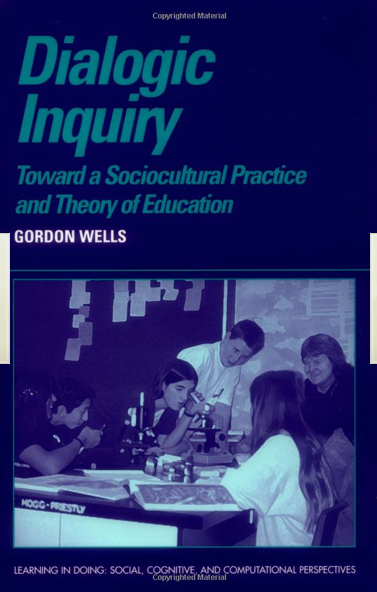
Dialogic Inquiry: Towards a Socio-cultural Practice and Theory of Education (Learning in Doing: Social, Cognitive and Computational Perspectives)
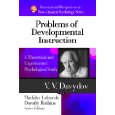
Problems of Developmental Instruction: A Theoretical and Experimental Psychological Study
Authors: V.V. Davydov (Translated by Peter Moxhay, Peaks Island, Maine)
Book Description:
"...the theory of developmental instruction is a sensation in world psychological science..."Professor Kunio Kumbayashi
Based on the results of many years of experimental and theoretical research, it is impossible not to conclude that the problems of developmental instruction and upbringing are among the most significant problems of contemporary psychology, especially in the fields of developmental and pedagogical psychology. The overall orientation of pedagogical thought and practice will in large part depend on their successful elaboration. The essence of these problems can be expressed concisely as follows: Do a person’s instruction and upbringing determine the processes of his psychical development, and if they do determine them then is it possible to understand the nature of the link between psychical development and instruction and upbringing? In other words, can we assert that developmental instruction and upbringing exist, and, if they exist, then what laws do they obey? In everyday life, these problems sometimes take the form of the question: Can we, by means of instruction and upbringing, develop in a person certain psychical capacities or qualities that previously did not exist?

The dynamics of writing instruction: A structured process approach for the composition teacher in the middle and high school.
Smagorinsky, P., Johannessen, L. R., Kahn, E., & McCann, T.
Portsmouth, NH: Heinemann. (in press).The Book and Its Organization Our approach in this book is to begin inductively. In the first section, we begin by asking you to think about possible ways of teaching writing in middle and high schools, and then suggest that you think about your assumptions about teaching writing, where they came from, and what types of instruction they produce. This process involves the consideration of scenarios depicting a range of approaches to teaching writing, situating your own beliefs in relation to them, and ultimately writing a scenario that portrays your own approach to writing instruction. In the second chapter we outline the structured process approach to teaching writing, a method that follows from what we learned from working with Hillocks and how we applied those principles in our own teaching. The second part of the book includes six chapters in which we illustrate this approach with commonly-taught types of writing in middle and secondary schools: personal narratives, fictional narratives, essays of argumentation, comparison and contrast essays, extended definition essays, and research reports. In these chapters we both outline what a structured process approach would look like in a classroom and explain our thinking about how we designed the activities. The final part of the book includes a single chapter that looks at a whole writing curriculum and how teachers might orchestrate writing pedagogy to teach students a range of processes for engaging in different types of tasks in relation to different areas of the curriculum. In doing so we hope to propose one possible way to think about writing instruction in the long and broad term, rather than to construct a rigid scope and sequence of writing that is not responsive to local conditions.
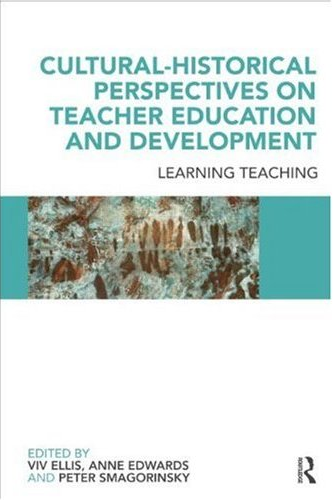
Cultural-historical perspectives on teacher education and development: Learning teaching.
Ellis, V., Edwards, A., & Smagorinsky, P.
New York: Routledge. (in press).Learning Teaching will be the authoritative volume internationally for those involved in teacher education and professional development interested in sociocultural and cultural-historical activity theory (CHAT) perspectives on teaching and learning. An edited collection of chapters by leading researchers from the UK, the US and Europe, it will gain coherence from its theoretical orientation and substantive focus on teacher learning and will be unique in the international market. Its aims will be: 1. To demonstrate the contribution of sociocultural theories and CHAT towards our understandings of teacher learning; 2. To offer a strong exemplification of a research focus on teachers as learners in specific sociocultural settings; 3. Through instances from contributors' research, to reveal what teachers learn, how they learn and where they learn, in the context of broader interests in the development of professional practice and professional education; 4. To clarify the purpose of initial (pre-service) teacher education and continuing professional development and the role of universities and higher education personnel in these processes.

Argumentation and Education. Theoretical foundations and practices
Muller Mirza, N. & Perret-Clermont, A.-N.
Springer 2009During the last decade, argumentation has attracted growing attention as a means to elicit processes (linguistic, logical, dialogical, psychological, etc.) that can sustain or provoke reasoning and learning. Constituting an important dimension of daily life and of professional activities, argumentation plays a special role in democracies and is at the heart of philosophical reasoning and scientific inquiry. Argumentation, as such, requires specific intellectual and social skills. Hence, argumentation will have an increasing importance in education, both because it is an important competence that has to be learned, and because argumentation can be used to foster learning in philosophy, history, sciences and in many other domains. However, learning argumentation and learning by arguing, at school, still raise theoretical and methodological questions such as: How do learning processes develop in argumentation? How to design effective argumentative activities? How can the argumentative efforts of pupils can be sustained? What are the psychological issues involved when arguing with others? How to evaluate and analyze the learners? productions? Argumentation and Education answers these and other questions by providing both theoretical backgrounds, in psychology, education and theory of argumentation, and concrete examples of experiments and results in school contexts in a range of domains. It reports on existing innovative practices in education settings at various levels. Written for: Researchers, educators, and graduate students in primary, secondary, and higher education Keywords: Argumentation CSCL tools Argumentation and Learning Argumentation and Social Constraints of Knowledge Argumentation as Social and Cultural Resource Argumentation in Higher Education Argumentation, debates and oral skills Argumentative Design Developing Argumentation Multidisciplinary Perspectives Psychosocial Perspective on Argumentation in Education Role of ICT Tools in Argumentation The Argumentum Experience Theoretical foundations
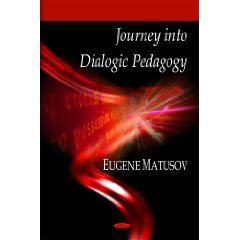
Journey into Dialogic Pedagogy
Eugene Matusov
Nova Publishers (2009)The author came to the decision to embark on this journey into dialogic pedagogy when he firmly realized that education is essentially dialogic. It is not that pedagogy should be dialogic ? he rather argues that it is always dialogic. This is true whether the participants in it, or outside observers of it, realize it or not -- and even when the participants are resistant to dialogue. This statement is in contrast with views that promote dialogic interaction in the classroom as a form of instruction. This conceptualization contrasts with views that dialogic interaction or conversational instruction are more effective instructional means in comparison to, let?s say, a more monologic genre of instruction such as a lecture or a demonstration. This statement is also in contrast with views that assume dialogue is a pedagogical instrument that can be turned on and off. He argues that whatever teachers and students do (or not do) whether in their classrooms or beyond it, they are lo! cked in dialogic relations.
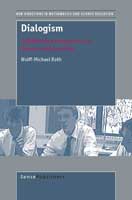
Dialogism: A Bakhtinian Perspective on Science Language and Learning
Wolff-Michael Roth
Sense Publishers (2009)Using concrete data from concept mapping in high school science classrooms, the author articulates a Bakhtinian approach to understanding language, learning, and the learning paradox. Particular attention is paid to the carnival nature of the vernacular and the monological nature of the natural sciences. The author suggests that much of everyday experience and language is suppressed and repressed in schools, but that to understand learning, we need to begin with the totality of experience and language and understand school episodes as small (constitutive) part of this totality.

Hegel's Logic, with a Foreword by Andy Blunden
Hegel
Erythrós Press and Media (February 2009)The final, 1830 version of the Hegel?s Logic, known as ?The Shorter Logic,? is the most accessible and until recently, the most widely known of Hegel?s mature works, the work which has been most influential among Marxists. In recent years, considerable attention has been paid to ?The Phenomenology? at the expense of his mature work. An understanding of ?The Phenomenology? is important to understanding ?The Logic,? but unlike ?The Logic,? ?The Phenomenology? was written in a hurry, contains much that is dated and is so poorly structured as to be almost unreadable. The 1830 Logic, which Hegel used in his lectures, is on the other hand, a reliable and structured presentation of Hegel?s mature views. The Logic is provided with a new Foreword by Andy Blunden which approaches Hegel from a Marxist perspective and will help the novice appreciate Hegel?s importance. Hegel?s mode of writing is arcane, and even this most accessible of his works may be hard for the modern reader to make sense of. This Foreword goes a long way to unlocking the mysteries of Hegel?s writing for the uninitiated. Few introductions to Hegel tackle the problem of what the subject matter of the Logic is. This is only made clear in his early works, and through an appreciation of his life and times. Andy draws on these aspects to introduce the reader to a powerful and systematic approach to problems which are as acute today as they were in 1830. Cost: $US25.00 + postage
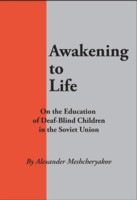
Awakening to Life
Alexender Meshcheryakov
Erythrós Press and Media (May 2009)Alexander Meshcheryakov (1923-1974) was a pupil of Professor Ivan Sokolyansky (1889-1960), who laid the foundations for the Soviet school of research into the subject of deaf-blindness. In this book, Meshcheryakov presents the summarised results of research and experiments carried out over a period of many years by Soviet psychologists and teachers engaged in the rearing and instruction of deaf-blind children. This serious social problem is discussed with all its psychological, educational and philosophical implications. Individual chapters are devoted to methods of establishing and realising the opportunities for developing the mental faculties inherent in deaf blind children. While shaping and developing childrens' mental capacities when chances for communication were so severely restricted and the children concerned suffered from such serious sensory malfunctions, the author took a new look at theoretical problems of the emergence of the human mind. From its beginning, the School of Soviet psychology around Lev Vygotsky, Alexander Luria and Alexei Leontyev, had focused on education in general and education of the disabled in particular. These problems were the mahor challenges facing their country at the time, and also provided excellent material for developing their scientific ideas. Meshcheryakiov's development of Vygotsky's though is not only rich creative, but arguably can be seen as the most significant current of development of Vygotsky original work. Meshcheryakov's warmth of heart and dedication will undoubtedly engage both specialists in this field and a much wider reading public. $US25.00 + postage
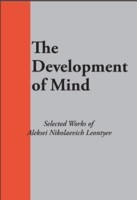
The Development of Mind
A N Leontyev
Erythrós Press and Media (May 2009)The major part of this book is the posthumous collection of Alexei Nicolaevich Leonytev?s works ?Problems of the Development of Mind,? published in 1981, but long since out of print. In addition we have included the article ?Activity and Consciousness,? included in a 1977 collection ?Problems of Dialectical Materialism. Philosophy in the U.S.S.R.? The articles contained herein constitute a comprehensive foundation of the school of Soviet Psychology known as ?Activity Theory? of which the best-known Western exponent is Yrjo Engström. What is striking about this work, something which is characteristic of Soviet psychology, is the insistence on tracing problems of human psychology from the very beginnings of living matter, step by step up to modern social life. Like the other works in this series, the material contained in this volume has long been out of print and unavailable to many newcomers to the science. And yet a mastery of AN Leontyev's work is fundamental to the understanding of all more reent work in the field. $US25.00 + postage

Vygotsky at Work and Play
Lois Holzman
Routledge: Hb: 978-0-415-42294-9 (January 2009)Vygotsky at Work and Play relates the discoveries and insights of Russian psychologist Lev Vygotsky to ordinary people and their communities. The author ? working with her intellectual partner Fred Newman ? has advanced a unique performance-based methodology of development and learning that draws upon a fresh and in some ways unconventional reading of Vygotsky. In this book, Holzman shows this methodology at work in key learning environments: psychotherapy, classrooms, out-of-school youth programs, and the workplace. The book vividly describes Vygotskian-inspired programs involving thousands of people from a wide range of cultural backgrounds, ages and occupations. Interwoven in each chapter are discussions of Vygotsky?s understandings of play, speaking, thinking, the zone of proximal development, the individual and the group. Holzman brings practice and theory together to provide a way forward for those who wish to liberate human development and learning from the confines of the social scientific paradigm, the institutional location of educational and psychological research, and the practices that derive from them. Vygotsky at Work and Play presents a challenge to the underlying distinctions and boundaries of psychology, most significantly to the presumption of a cognitive- emotive divide, the notion of fixed identity, the privileging of the individual over the group, and the instrumental nature of play and performance. The book is essential reading for researchers and professionals in educational and developmental psychology, psychotherapy, cultural historical activity, social science, performance studies and education."

The Ideal in Human Activity
E. V. Ilyenkov
Erythrós Press and Media. (2009)The articles collected here were all written in the last few years of Ilyenkov's life in the mid- to late 1970s, before he died by his own hand, evidently exasperated at the dead end at which his country had arrived. Ilyenkov's work reflects a deep study of classical German philosophy and the writings of Karl Marx. Reflecting on the work of the school of psychology originating in the Soviet Union in the late 1920s and early 30s by Lev Vygotsky, Ilyenkov gives this current is ultimate philosophical expression. The central achievement of Ilyenkov is to unravel the mystery of the nature of the ideal or universal as a product of human activity which allows the formation of a conscious reflection of that activity in the human mind. Ilyenkov showed that the ideal is not some ethereal object existing inside the human head but a special kind of cultural product, the archetype of which is money. Part One of the series of essays, ?Dialectical Logic,? published by Progress Publishers in 1974, traces the development of the concepts of the ideal through the history of the concept of logic from Descartes, through Spinoza, Leibniz, Kant, Fichte, Schelling, Hegel and Feuerbach. In Part Two of this collection, Ilyenkov takes a series of problems which lead us to an understanding of Marx?s solution to these problems, including his treatment of the concept of the general or universal, and thus the ideal. This work is then supplemented with a series of essays: ?Activity and Knowledge,? ?The Universal,? and the well-known ?The Concept of the Ideal.? This work on the ideal is then supplemented with one of Ilyenkov?s last works, the little known ?Leninist Dialectics and the Metaphysics of Positivism. Reflections on Lenin?s book: ?Materialism and Empirio-Criticism?,? published in English in 1982. Many people will find this thoroughgoing defence of Lenin?s ?notorious? book surprising, but as will be seen, an understanding of Lenin?s point here is crucial to an understanding of the points covered in the earlier parts of this book. All of the material in this volume are currently out of print and otherwise unavailable except in specialist libraries.
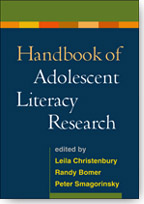
Handbook of adolescent literacy research.
Christenbury, L., Bomer, R., & Smagorinsky, P. (Editors)
New York: Guilford. (2009)The Guilford Handbook of Adolescent Research is the winner of the 2009 Edward B. Fry Book Award presented by the National Reading Conference.
The first comprehensive research handbook of its kind, this volume showcases innovative approaches to understanding adolescent literacy learning in a variety of settings. Distinguished contributors examine how well adolescents are served by current instructional practices and highlight ways to translate research findings more effectively into sound teaching and policymaking. The book emphasizes social and cultural factors in adolescents' approach to communication and response to instruction, and sections address literacy both in and out of schools, including literacy expectations in the contemporary workplace. Detailed attention is given to issues of diversity and individual differences among learners.

Bullish on Uncertainty
by Alexandra Michel and Stanton Wortham
Cambridge University Press (2008)Bullish on Uncertainty Bullish on Uncertainty studies how two highly successful Wall Street investment banks managed the uncertainty of their high-velocity environment through different work practices. Through vivid accounts of newcomers during their first two years the book traces how the two banks' initially similar participants were transformed into fundamentally different kinds of persons by the different kinds of work practices in which they participated.
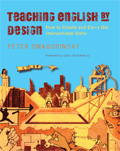
Teaching English by design: How to create and carry out instructional units.
Smagorinsky, P.
Portsmouth, NH: Heinemann. (2008)Many books on English/language arts instruction describe the teaching of units, but how many of them actually show how to create the units, make them meaningful to students, and use them to support your curriculum from September to June? Teaching English by Design does it all. It helps avoid a fragmentary curriculum by providing the rationale and the process for not only teaching well but also for producing integrated units that encourage students to deepen their thinking across the school year. Teaching English by Design is two books in one: a primer for teaching secondary English and a comprehensive guide to creating and using four to six-week instructional units. Peter Smagorinsky shares important insight about students, how they learn, and what kinds of classrooms support their achievement in reading and writing. Then he uses those findings to open up the key ideas of unit design to every teacher. Smagorinsky?s units are organized around key concepts in English, such as: reading strategies writing strategies genres periods, regions, and movements in literature themes the works of a significant author. From original idea to construction, to implementation and beyond, Smagorinsky?s practical advice supports teachers in extending, connecting, and integrating their units to increase the cohesion and power of the curriculum. Incorporating curricular theory, educational psychology, and fourteen years of high school teaching experience, Peter Smagorinsky?s advice is both theoretically sound and grounded in the daily realities of today?s teacher. Complemented by a wealth of web-based illustrations, Teaching English by Design is the ideal resource for preservice teachers as well as those in the classroom who want to take charge of their curriculum and find new energy in it.
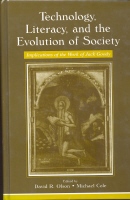
Technology, Literacy, and the Evolution of Society
Edited by David R. Olson and Michael Cole
Lawrence Erlbaum Associates, Publishers 2006In this collection, some twenty distinguished historians, anthropologists, psychologists, and educators address, from their different perspectives, the role of technologies in social stability and change in traditional and modern societies. Inspired by the seminal work of Jack Goody's historical anthropology, they examine the relations between East and West, Eurasia and Africa, hoe and plow cultures, those with and without writing, those with and without flowers, and those with and without high cuisine with a view to determining some of the mechanisms behind sociocultural stability and change.

Research on composition: Multiple perspectives on two decades of change.
Smagorinsky, P. (Editor)
New York: Teachers College Press and the National Conference on Research in Language and Literacy. (2006).Researchers, teachers, and other educators looking for a guide to teacher research, literacy beyond the academy, and second language writing research will find their bearings here. The contributing authors and their chapters are outstanding.? ?Martin Nystrand, University of Wisconsin?Madison The third volume in a landmark series on composition research! Covering the period between 1984 and 2003, this authoritative sequel picks up where the earlier volumes (Braddock et al., 1963, and Hillocks, 1986), now classics in the field, left off. It features a broader focus that goes beyond the classroom teaching of writing to include teacher research, second-language writing, rhetoric, home and community literacy, workplace literacy, and histories of writing. Each chapter is written by an expert in the area reviewed and covers both conventional written composition and multimodal forms of composition, including drawing, digital forms, and other relevant media. Research on Composition is an invaluable road map of composition research for the next decade, and required reading for anyone teaching or writing about composition today's learners.
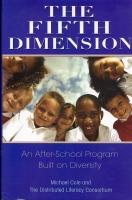
The Fifth Dimension
Michael Cole and The Distributed Literacy Consortium
Russell Sage Foundation (2006)The Fifth Dimension explores and evaluates one of the country's most successful and innovative after-school programs, providing insightful practical lessons about what works and doesn't work after school.
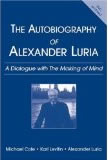
The Autobiography of Alexander Luria
Michael Cole, Karl Levitin and Alexander Luria
Lawrence Erlbaum Associates, Publishers (2005)Alexander Luria was one of the most influential psychologists of the 20th century. His official autobiography was written as a citizen of the Soviet Union, and while it provides a compelling story of his lifelong devotion to developing a comprehensive theory of the biological and cultural foundations of human nature, it is conspicuous for the absence of information about the social context of his work and his personal struggles to be a decent person in indecent times.
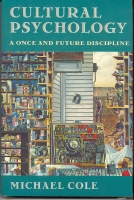
Cultural Psychology -A Once and Future Discipline
Michael Cole
The Belknap Press of Harvard University Press Paperback edition (1998)This book, in the spirit of its title, explores the origins and possible future of the field of cultural psychology, the study of the culture's role in the mental life of human beings.